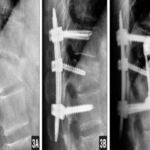If you suffer from any form of back pain, your physician may want to discuss medication alongside other treatment options. There are many different forms of back pain medication, ranging from short to long-term choices.
The type of back pain medicine your physician prescribes will depend on your symptoms and medical history. If, for example, you suffer from painful inflammation, your physician may suggest trying an anti-inflammatory drug. Or, if you’re suffering from a more general type of pain, a broader back medication may be prescribed.
Some of the most commonly used types of back pain medicine include aspirin, ibuprofen, and codeine. Other more specialized forms of back pain medication include diazepam, metaxalone, carisoprodol, and more. Every form of medication has its own pros and cons, and not every medicine is right for every person.
It may take some time to discover what back pain medication best relieves your symptoms, and what dosage is most effective for you. While you try new back pain medications, it’s important that you remain in close contact with your physician in order to discover any side effects. Most medicines carry at least some side effects, although people may experience them differently. But eventually, with enough investigation, chances are good that you’ll find a back pain medication that suits your needs.
You may also discover that your back pain medication is more effective when combined with other forms of therapy. Moderate exercise, stretching, yoga, spinal traction, physical therapy and more can all do their part in helping relieve your pain. Engaging in active therapy alongside taking back pain medication can help maximize the effectiveness of both.
If you have questions about back pain medication, or are struggling with spinal pain, contact your physician to learn more. Even if the medicine you are interested in is available over-the-counter, it’s important that your physician approve anything you plan to begin taking regularly. In addition, if your back pain is severe enough that you’re considering self-medicating, chances are it’s time to have your problem diagnosed so that you can start looking for more permanent relief.
Common Medical Treatments
- Acetaminophen
- Amitriptyline
- Anticonvulsants
- Antidepressants
- Aspirin
- Benzodiazepine
- Carbamazepine
- Carisoprodol
- Clonazepam
- Codeine
- Cyclobenzaprine
- Diazepam
- Duloxetine
- Eszopiclone
- Flurazepam
- Gabapentin
- Ibuprofen
- Ketoprofen
- Lioresal
- Lorazepam
- Metaxalone
- Morphine
- Muscle Relaxants
- Naproxen
- Nefazodone
- Non-Benzodiazepines
- Nortriptyline
- NSAIDs
- Opioids
- Oxycodone
- Temazepam
- Tiagabine
- Topamax
- Trazodone
- Triazolam
- Zaleplon
- Zolpidem


























